#hegel
Text

2K notes
·
View notes
Text
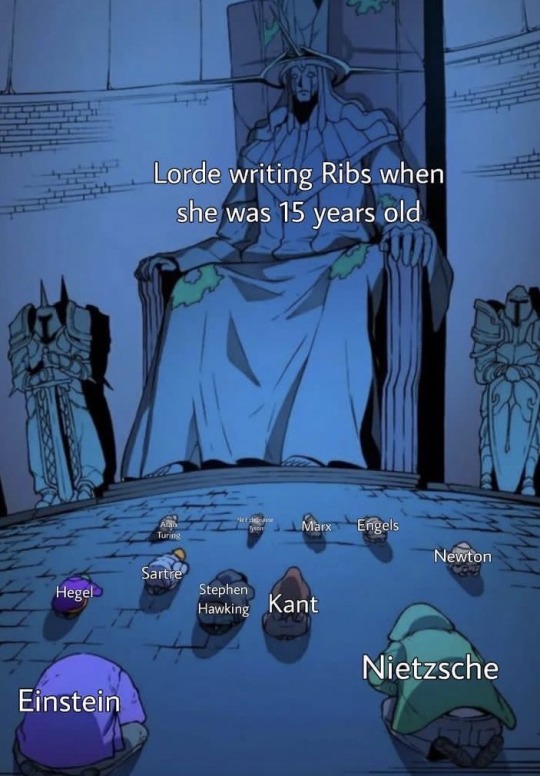
Lorde - laughing ‘til our ribs get tough
#lorde#solar power#solar power tour#melodrama#pure heroine#lorde music#lorde lyrics#ribs by lorde#isaac newton#hegel#albert einstein#nietzche#stephen hawking
6K notes
·
View notes
Text
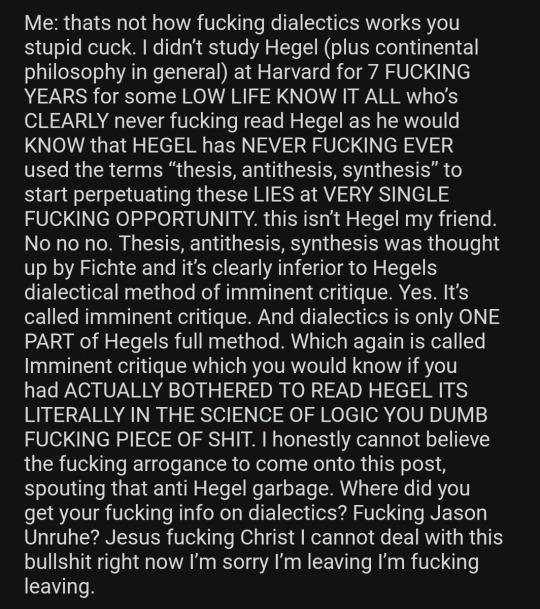

#akechi goro#hegel#silly#ive just come across this copypasta and this is the first thing i thought of
3K notes
·
View notes
Text
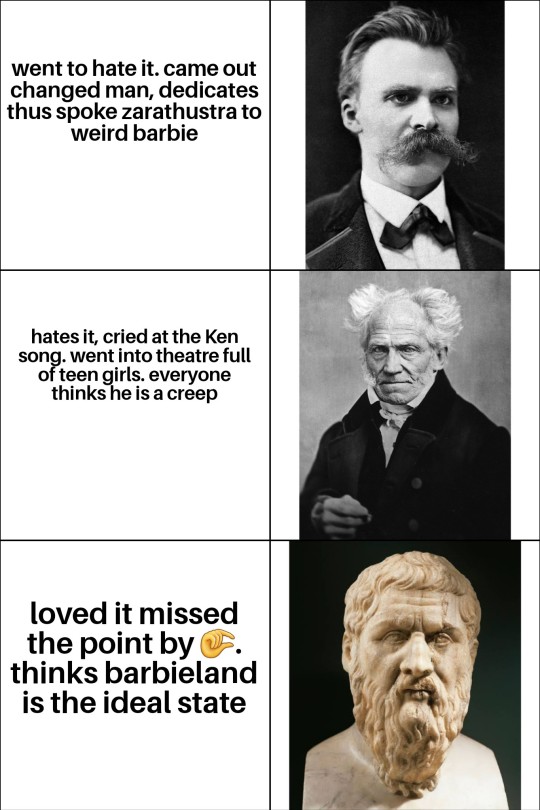
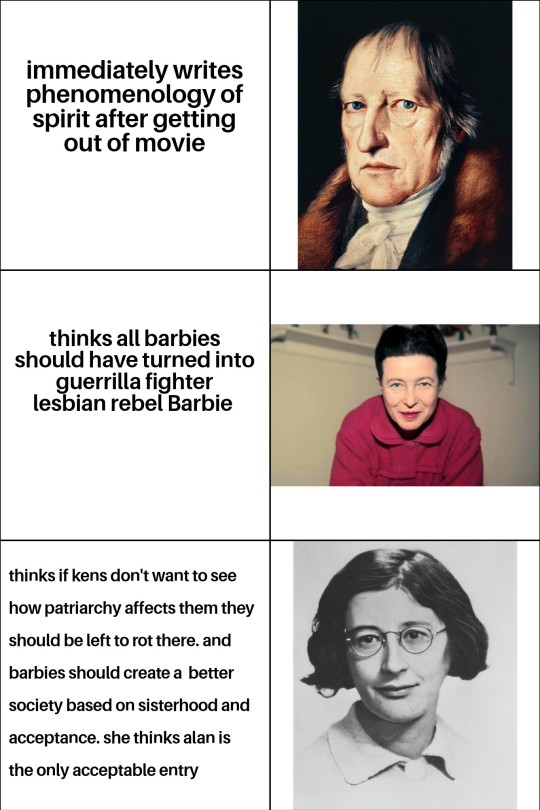
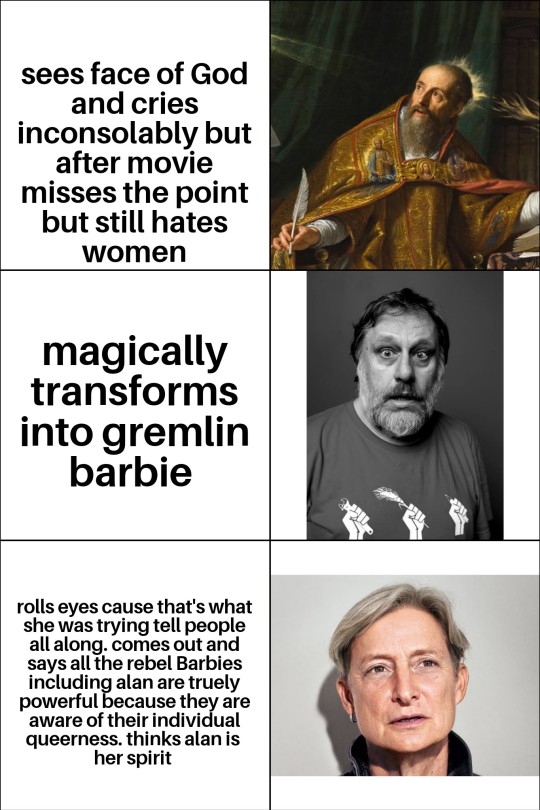
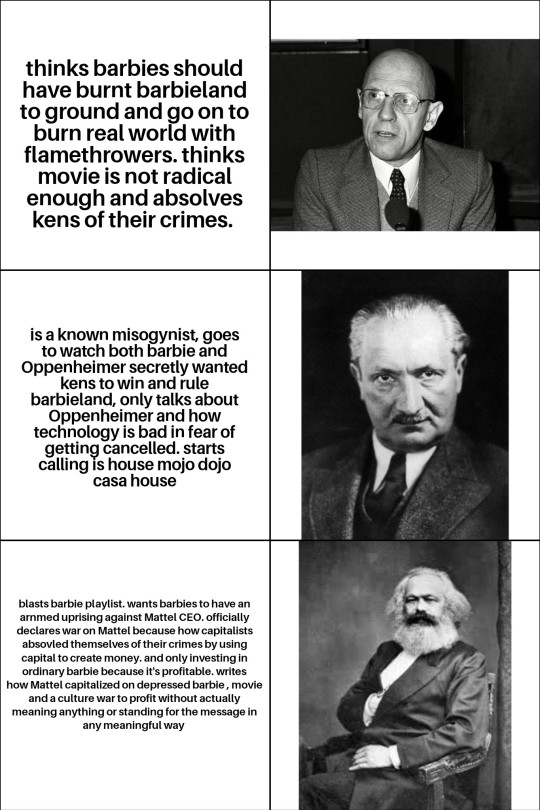
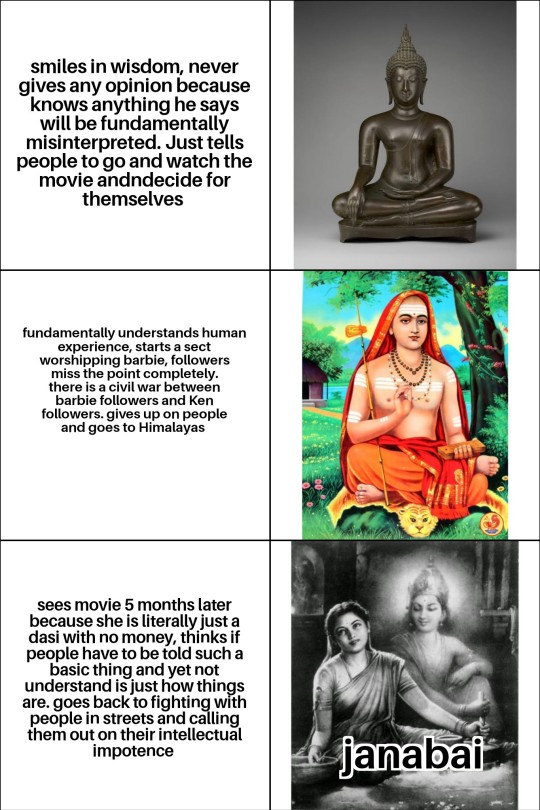
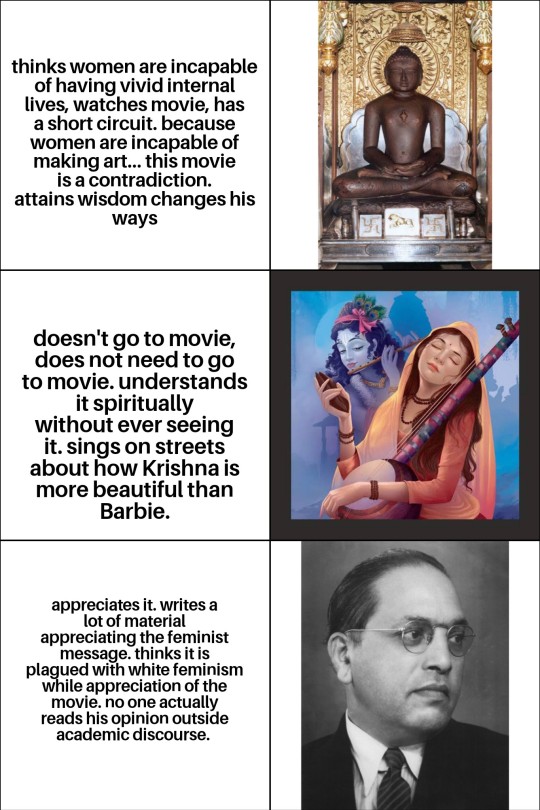
Philosophers on barbie movie
#barbie#philosophy#art#friedrich nietzsche#slavoj zizek#Plato#hegel#simone de beauvoir#simone weil#buddha#judith butler#karl marx#foucault#heidegger
487 notes
·
View notes
Text
Where I live three schools attempted to pass measures requiring the teachers to notify the parents if their kids are trans, or basically forcibly outing transgender kids to their parents. Thankfully, there are a large number of people coming out opposing this measure, but unfortunately, the "parents rights" crowd is also coming out in support.
I've argued with people on social media supporting the policy saying the parents should be obligated to be notified if their kids are trans, it is their right. The subject of "parent rights" is actually historically familiar.
Hegel, himself a school principal, was a proponent of universal public education, explicitly saying "The State has the absolute duty to make sure that children receive an education." He noted its value towards society allowing poor families to "rise above their condition" and have the children "develop talents" that would otherwise be stifled by poverty. While his position is pretty much modern, he had his opponents who stated it violated "rights of individuals" specifically "those of fathers over their children."
Hegel criticized such arguments, saying it took from the ancient tradition of Rome that reduced children to "things" and saw the child as the property of their parents when "he must be a member of civil society, has rights and claims within it, just like those he had within the family" and "children have the rights to be educated to live in civil society, and if parents neglect this right, civil society must intervene." In other words, he saw "parents' rights" as reducing children to property with no rights rather than people deserving of their own rights, especially the right to an education.
Let's say CPS comes over and takes kids from a horribly abusive household, would that action be considered bad for violating the rights of the parents to their kids? No, because to do so would come at the cost of the kids' rights to a safe and healthy environment.
Which brings us to the present topic of outing trans kids. The proponents are saying it is the "right" of the parents to be told if their kids are trans regardless of their child's consent. They don't mention the child's right to consent, nor do they care, since it is not about the best interests of the child but the parents' control over their children. If a child has not disclosed their identity to their parents, then it is not unlikely that there is a good reason for it. Their parents may be transphobes, and such parents may respond to the knowledge of their child being trans with abuse, by trying to "fix" them, force them to be cis, up to and including conversion therapy, and in a number of cases kick them out, or the teen runs away with LGBT teens making up around 40% of homeless youth. Both actions can increase the child's chances of suicide with ~30% of trans teen girls admitting to having attempted suicide. In the worst cases, there are parents who kill their trans kids.
A parent is supposed to provide for their child in material terms with food, clothes and housing as well as emotional support, but a parent should not say "I feed and house them, so I have a right to . . ." as parenting is not a contract given kids did not choose to be born. "Parents rights" is BS as parenting is not a right but a privilege. The child is the one with a right to a safe, comfortable environment, and so long as the parent provides them that, their privilege of being a parent is respected.
Children are people. Trans people are people. They are members of civil society, and have a right to consent and safety. Don't support outing trans kids to their parents. Period.
#transgender#trans rights#protect trans kids#trans kids#trans rights are human rights#transgender rights#trans#trans rights matter#hegel
303 notes
·
View notes
Text
Hegel's overriding impulse was to comprehend all dimensions of existence as dialectically integrated in one unitary whole. In Hegel's view, all human thought and all reality is pervaded by contradiction, which alone makes possible the development of higher states of consciousness and higher states of being. Each phase of being contains within itself a self-contradiction, and it is this that serves as the motor of its movement to a higher and more complete phase. Through a continuing dialectical process of opposition and synthesis, the world is always in the process of completing itself. Whereas for most of the history of Western philosophy from Aristotle onward, the defining essence of opposites was that they were logically contradictory and mutually exclusive, for Hegel all opposites are logically necessary and mutually implicated elements in a larger truth. Truth is thus radically paradoxical.
Richard Tarnas, The Passion of the Western Mind: Understanding the Ideas that Have Shaped Our World View
#quote#Richard Tarnas#Tarnas#Hegel#Aristotle#coincidentia oppositorum#coincidence of opposites#union of opposites#truth#philosophy#Georg Wilhelm Friedrich Hegel#Western philosophy#Western Mind#thinking#psychology#mind#paradox
163 notes
·
View notes
Photo

The returning nature of Hegel’s Dialectic
433 notes
·
View notes
Text
i was gonna write up a little thing about caesar from new vegas about how people being like "hmm he kinda has a point though" is deeply worrying for the media literacy of our average gamer goon in the modern era. but i realized that no, i'm on tumblr here, i'm preaching to the choir, and whatever i say will never be as funny as this meme; so here
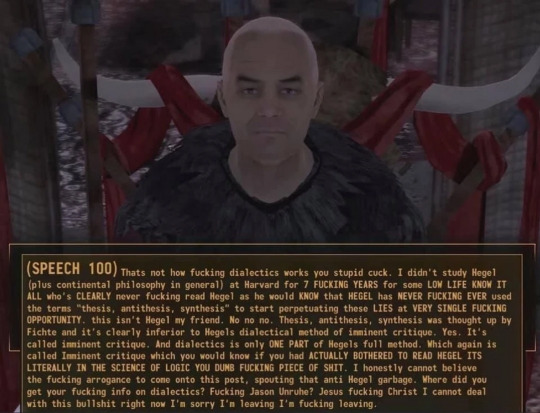
#f:nv#fallout: new vegas#caesar's legion#caesar fallout#caesar fnv#hegel#god how i wish you could call out caesar on his bullshit in game#if i ever get rich enough to buy the rights to fallout#im gonna make that a genuine speech option#with wild wasteland of course#though even without it there should be an option to call out his Bull Shit
177 notes
·
View notes
Text

#deutschland#leibniz#kant#hegel#schopenauer#schelling#beckenbauer#jaspers#schlegel#wittgenstein#nietzsche#heidegger#monty python
66 notes
·
View notes
Quote
I nurture what is for me at times a puzzling respect for Hegel; I have learned much from him, and I know very well that I can still learn much more when I return to him again. ... But nevertheless, it is no less true that someone who is really tested in life, who in his need resorts to thought, will find Hegel comical despite all his greatness.
Søren Kierkegaard, Journals and Papers
106 notes
·
View notes
Text

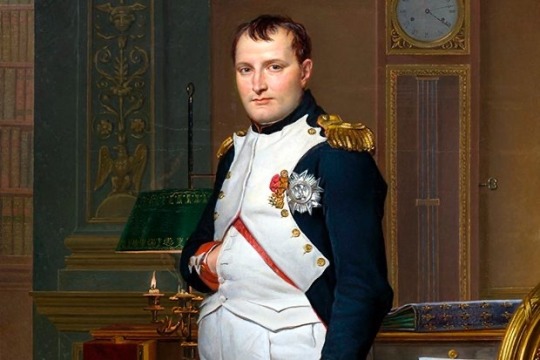
#🤭🤭🤭#lol#Napoleon#napoleon bonaparte#philosophy#philosophers#Hegel#napoleonic era#napoleonic#war of the 4th coalition#4th coalition#first french empire#19th century#french empire#france#history#Germany
138 notes
·
View notes
Text
An idea is small if it affects only the way you think about some things. An idea is big if it changes the way you think about everything.
To whom big ideas are given, an equally significant responsibility is entrusted.
55 notes
·
View notes
Text
Furthermore, the very attempt to define how a philosophical work is supposed to be connected with other efforts to deal with the same subject-matter drags in an extraneous concern, and what is really important for the cognition of the truth is obscured. The more conventional opinion gets fixated on the antithesis of truth and falsity, the more it tends to expect a given philosophical system to be either accepted or contradicted; and hence it finds only acceptance or rejection. It does not comprehend the diversity of philosophical systems as the progressive unfolding of truth, but rather sees in it simple disagreements. The bud disappears in the bursting-forth of the blossom, and one might say that the former is refuted by the latter; similarly, when the fruit appears, the blossom is shown up in its turn as a false manifestation of the plant, and the fruit now emerges as the truth of it instead. These forms are not just distinguished from one another, they also supplant one another as mutually incompatible. Yet at the same time their fluid nature makes them moments of an organic unity in which they not only do not conflict, but in which each is as necessary as the other; and this mutual necessity alone constitutes the life of the whole. But he who rejects a philosophical system [i.e. the new philosopher] does not usually comprehend what he is doing in this way; and he who grasps the contradiction between them [i.e, the historian of philosophy] does not, as a general rule, know how to free it from its one-sidedness, or maintain it in its freedom by recognizing the reciprocally necessary moments that take shape as a conflict and seeming incompatibility.
Georg Wilhelm Friedrich Hegel, The Phenomenology of Spirit (Phänomenologie des Geistes), translated by A. V. Miller
#quote#Georg Wilhelm Friedrich Hegel#Hegel#philosophy#The Phenomenology of Spirit#Phenomenology of Spirit#phenomenology#The Phenomenology of Mind#metaphysics#ontology#systems#wholeness#unity#nature
64 notes
·
View notes
